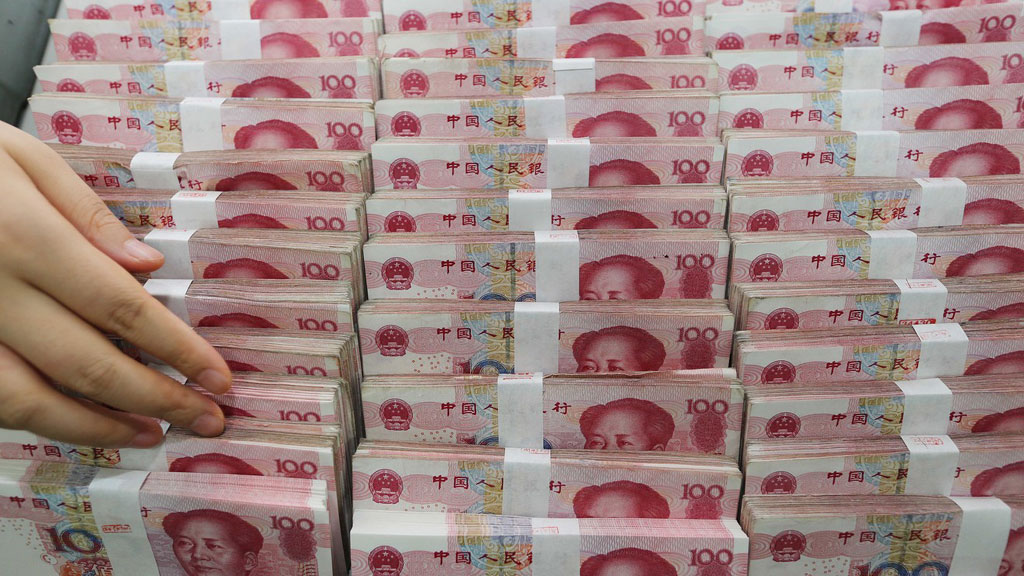China's yuan in longest losing streak since 2015 amid trade row

LONDON: China's yuan was heading on Friday for its longest weekly losing streak since November 2015, going against broadly firmer emerging markets after Beijing and Washington squared off at the World Trade Organization (WTO).
The United States and China presented radically different visions of Beijing's economic model at the WTO on Thursday, with Washington's ambassador criticising "the world's most protectionist economy" and his Chinese counterpart describing a U.S. report as "half-cooked".
The Chinese currency breached the key 6.8 per dollar level a day after the WTO clash, down 0.5 percent to 13-month lows. The yuan has been under sustained pressure since U.S. President Donald Trump threatened to impose tariffs on all imports from China.
"It's tit-for-tat tactics ... it seems a never-ending cycle of measures and counter-measures," said Cristian Maggio, head of EM strategy at TD Securities. "The market is a bit frustrated with not being able to see the end of this situation."
The yuan is now set for its seventh week of losses, with investors' bearish bets on the yuan at an all-time high, according to a Reuters poll.
Maggio said the speed of the move since the start of June was remarkable and raised some concerns, such as whether the decline was fundamentally driven, or policy implementation through other means - weakening the renminbi to offset higher tariffs.
Chinese mainland shares fell 0.4 percent, but still ended the week up 0.8 percent.
A strong performance on other bourses helped MSCI's emerging equities benchmark index gain 0.2 percent, on track to end the week up almost 2 percent.
India rose 0.9 percent to hit a fresh record high, ending the week up over 2 percent, while Pakistan rallied 0.9 percent on the day to over one-month highs, as investors welcomed cricket legend Imran Khan's victory in the general election.
Pakistan shares are set to end the week up 3 percent, their best performance since March, while the rupee is up 0.5 percent.
South African shares also gained 0.7 percent and Turkish stocks rose 0.6 percent.
Turkey's lira firmed 0.2 percent, but is set to end the week down 1.3 percent after the central bank kept interest rates unchanged, defying expectations of a sharp rise.
Investors have also been unnerved by threats from Trump to slap sanctions on Turkey unless it frees an American pastor, prompting an angry response from Ankara.
"If the U.S. forces international institutions to reduce exposure to Turkey, then it will be in big trouble as Turkey is highly reliant on external funding," Maggio said.
The Russian rouble was steady before a central bank meeting at which it is expected to hold rates at 7.25 percent, according to a Reuters poll. Last month the bank indicated that government proposals to raise VAT had all but dashed prospects for further rate cuts in the coming months.






















Comments
Comments are closed.